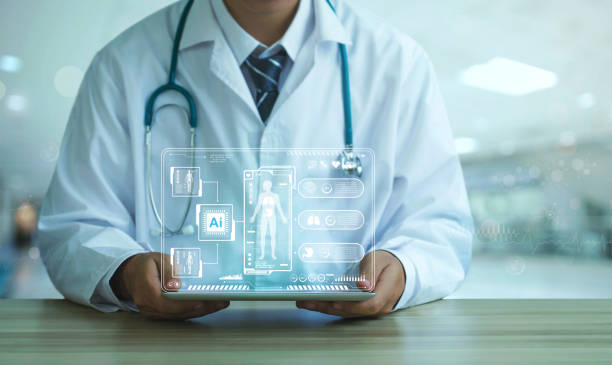Monday, April 7, 2025
Healing with Code: How AI and Tech Are Transforming Modern Medicine

Technology Is Changing the Way We Heal
Modern medicine is entering a new era—one powered by artificial intelligence, coding, robotics, and big data. These tools are helping doctors make better decisions, discover new treatments faster, and improve patient care across the board. For students and young people, understanding how tech supports healthcare is more important than ever. The future of medicine will depend not only on doctors and nurses, but also on developers, data scientists, and AI experts.
Smart Tools for Faster Diagnoses
AI systems are now being used to detect diseases early and with high accuracy. For example, an algorithm trained on thousands of X-rays can identify signs of pneumonia or cancer faster than a human. These tools don't replace doctors, but they give doctors extra eyes—helping catch conditions that might otherwise be missed.
This kind of speed matters. Early detection saves lives. With AI, patients can begin treatment sooner, and doctors can make more confident decisions. As these systems improve, they’re becoming a key part of everyday medical practice.
The Power of Medical Data and Coding
Every time a patient visits a clinic, gets a test, or takes medication, data is collected. When organized and analyzed with code, this data becomes powerful. It can reveal trends, improve treatment plans, and even predict outbreaks before they happen.
Behind the scenes, coders and data scientists are essential. They write the algorithms, clean the data, and build the platforms that power health tech. For students who enjoy problem-solving, biology, or computers, medical coding is a field where their skills can directly improve lives.
Personalized Medicine for Better Outcomes
Not every treatment works the same for every patient. Thanks to AI, doctors can now personalize care based on someone’s genetics, lifestyle, and health history. This is called precision medicine.
With AI analyzing complex data sets, doctors can choose the best possible medication or therapy for each individual. This leads to fewer side effects and better results. As technology continues to evolve, personalized medicine could become the standard, not the exception.
Robots in the Operating Room
Robotics is another exciting frontier. Surgical robots help doctors perform procedures with incredible precision. These machines don’t act alone—a human surgeon controls them—but they allow for smaller incisions, faster recovery times, and less risk of complications.
In some hospitals, robots also deliver supplies, clean rooms, or assist in physical therapy. They are not replacing healthcare workers—they’re supporting them and making care more efficient.
Wearable Tech and Remote Monitoring
Smartwatches and health monitors can now track heart rate, sleep, blood oxygen levels, and more. These devices collect real-time data and alert patients—or doctors—when something is wrong. For people with chronic illnesses, this kind of tracking can prevent emergencies.
AI helps make sense of the data, spotting patterns that the human eye might miss. This gives doctors more insight and helps patients manage their own health.
Ethical Challenges and the Need for Human Oversight
While AI and tech offer huge benefits, they also raise serious questions. What happens if an AI system makes a mistake? Who has access to your medical data? Can machines show bias?
That’s why ethical training and human oversight are essential. People—not just machines—must remain in control of medical decisions. As more students learn to build and use these technologies, they must also learn how to use them responsibly.
Creating New Career Paths in Medicine
Healthcare is no longer just about biology and chemistry. Now, it also includes programming, engineering, and AI. This opens new doors for students who want to be part of the medical field, even if they don’t want to become doctors.
Roles like medical software developer, biomedical engineer, health data analyst, or robotics technician are in high demand. Learning tech skills today could help students step into these careers tomorrow—and help solve some of the world’s most pressing health challenges.
Conclusion
Technology is changing the future of healthcare—making it faster, smarter, and more personal. From detecting diseases early to supporting doctors in surgery, AI and tech are improving lives every day.
But to keep making progress, we need the next generation to understand both medicine and technology. By learning to code, think critically, and ask the right questions, young people can play a big role in shaping a healthier world. The future of medicine isn’t just in the hands of doctors—it’s also in the minds of tech-savvy students ready to make a difference.